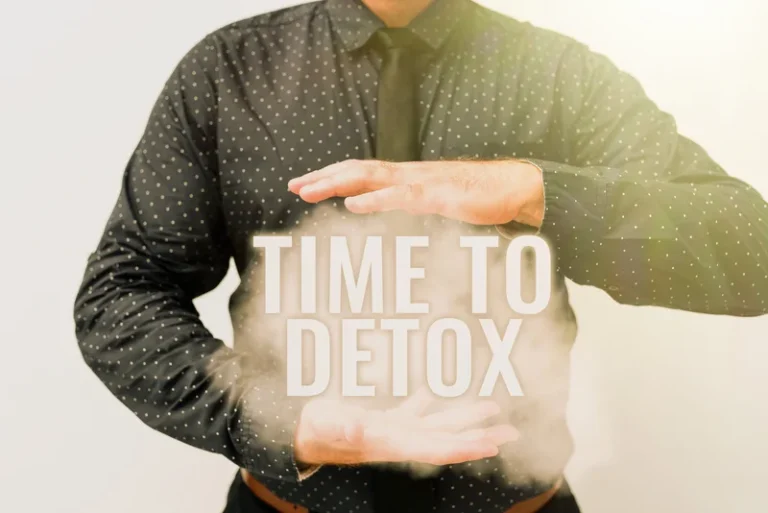
You live in a substance-free environment while navigating the responsibilities of life in the real world. Several prominent umbrella organizations provide quality assurance and regulatory oversight for sober living homes in the U.S. Although some state organizations provide formal certification or accreditation for sober homes that meet certain standards, not all do. At sober living homes, residents mash sober housing are also encouraged to develop a social network in which they provide mutual support and encouragement to their peers and housemates in recovery. Not surprisingly, they are also encouraged to avoid old friends, acquaintances, and dealers that they used to use drugs or drink with. In Texas, sober living homes are not required to be licensed, but they can voluntarily request a license.
Why Do Some States, Cities and Counties Want to Regulate Sober Living Homes?

For example, the Sober Living Network focuses on promoting and maintaining high-quality management and operation of sober living homes, as well as other community recovery support services. This network provides information for residents or potential residents on their housing rights, and offers management training to people who wish to start a sober living home. SLN has been in operation since 1995, serving those in recovery and those who operate sober living homes in Southern California. The effectiveness of sober living homes is a crucial factor in the recovery process for individuals living with substance use disorders (SUDs). These homes provide a structured, supportive environment essential for the transition to sobriety.

Cost of Sober Living Homes
She points to the experience of Newport Beach, which more than a decade ago became the first city to draft rules for sober living homes. However, it’s important to note that federal laws such as the Fair Housing Act and the Americans with Disabilities Act provide protections to individuals in recovery, recognizing addiction as a disability. This means that local regulations must be carefully crafted to avoid discrimination against sober living homes, which are considered a form of disability housing. While critical for recovery, sober living homes have become a point of contention in residential communities. Residents often express concerns about the potential for increased noise, traffic, and a perceived threat to safety and property values. In response to such problems, local governments have enacted regulations to mitigate neighborhood disruption while balancing the rights of those in recovery.
Variations in State Regulations for Sober Living Homes
Learn about the benefits of these programs and how they help people move from intensive addiction treatment to life. Recovery First, an inpatient rehab near Miami, is dedicated to providing the highest level of care. For instance, the push for tighter regulations due to fraud scandals indicates a drive towards greater accountability and protection for residents in Arizona.

- These homes provide a structured, supportive environment essential for the transition to sobriety.
- However, these initiatives often face opposition, and their effectiveness is debated (source).
- There are important legal and operational guidelines that sober living homes must follow regarding MAT.
- If you or a loved one is searching for a sober living program, you’ve likely wondered how you should determine the trustworthiness and credibility of a sober living home.
- A recent bill in Arizona, SB1655, mandates that behavioral health entities and sober living homes must file necessary incorporation documents within ten business days before commencing operations.
- The bill would also make certification mandatory for all for-profit sober living homes.
Since then, many different types of sober living homes have been developed and established by various individuals and organizations. The National Association of Recovery Residences established the voluntary certification model that inspired these states to follow suit. NARR developed the national standards that many of these states use in their voluntary licensing programs. The first state to require mandatory licensing for all sober living homes was Utah, in 2014. Our independent research team continuously gathers and evaluates data to compile an unbiased and thorough list of the best treatment centers offering sober living centers have a comprehensive list of options. Standards include everything from providing smoke detectors and a pest-free environment, to management training and residential council governance guidelines.
- The individuals you plan to work with long-term work with will make a difference in your life.
- SLN has been in operation since 1995, serving those in recovery and those who operate sober living homes in Southern California.
- Not only does this type of situation create an unhelpful living environment, but it can also cause setbacks that can lead to relapse or contribute to mental health problems.
- When you open your sober living home and begin housing people in recovery, it’s best to have each resident review and sign the policy handbook upon admission and give them a copy to keep.
- Opening a sober living home in New York is a great way to get started in the behavioral health industry.
Addressing Neighborhood Concerns Regarding Sober Living Homes
- In summary, the interplay between federal and state laws and local regulations shapes the landscape in which sober living homes operate.
- Residents must often participate in regular drug testing, adhere to house rules, and engage in shared responsibilities.
- These local measures often include zoning laws, safety standards, and limits on the number of homes allowed in a particular area.
- This structured support and accountability are fundamental to the recovery journey, helping individuals reinforce coping skills and navigate life without substances.
However, concerns are raised that excessive focus on regulation might overshadow the operational challenges faced by sober living homes and potentially harm residents seeking recovery. Furthermore, the intersection of federal laws like the Fair Housing Act and the Americans with Disabilities Act with state regulations creates a complex legal landscape. These federal laws protect individuals in recovery from discrimination, complicating local efforts to regulate sober living homes.

Sandstone Care Young Adult Sober Living
This measure aims to protect residents and ensure that sober living homes meet certain standards of care. In turn, this also provides peace of mind for residents’ families and loved ones who want to see them succeed in sobriety. The member of your household is required to ask anyone with the appropriate gender to act as house manager so that the board can also run your sober living house smoothly and effectively. The job of a house manager includes keeping an eye on the occupancy levels in straight living homes and organizing house activities and neighbour gatherings. A landlord may, on occasion, also have the opportunity to live with his or her tenants at their homes.

Improvements could include establishing uniform standards for the operation of sober living homes, such as mandatory training for staff, minimum quality standards for housing, and protocols for resident safety and relapse prevention. In summary, the interplay between federal and state laws and local regulations shapes the landscape in which sober living homes operate. The concerted efforts to tighten oversight and provide resources aim to bolster the effectiveness of these homes in the recovery ecosystem. The intricate relationship between legislation and sober living homes plays a crucial role in shaping the operations and effectiveness of these recovery environments. Another significant challenge is the lack of oversight, which can result in substandard living conditions and exploitation of residents.
- Accreditation requirements like staff training and regular inspections ensure that operators of sober living homes are adhering to the national standards set forth by the NARR or other organizations.
- In most instances, residents may continue to live at a sober home as long as they comply with the rules and maintain their sobriety.
- As a chronic disease, addiction can be difficult to treat, but it’s certainly not hopeless.
- Sober living homes (SLHs) are integral to the continuum of care for individuals recovering from substance use disorders.
- It is advised that all interested parties contact the Arizona Department of Health Services for additional information on new requirements for sober living homes and managers.
Sober Living and Its Role in Recovery
These laws will determine whether an existing property such as a residential home can be repurposed. If you are an individual or a group who would like to start a sober living home in your community, Eudaimonia Recovery Homes is here to help. We successfully own and operate several sober living homes in Texas and Colorado that are adequately serving the needs of men and women who are recovering from addiction. Valley Spring Recovery Center offers comprehensive addiction and mental health treatment services. It is important to note that these rules and regulations are designed to create a supportive and accountable environment.
